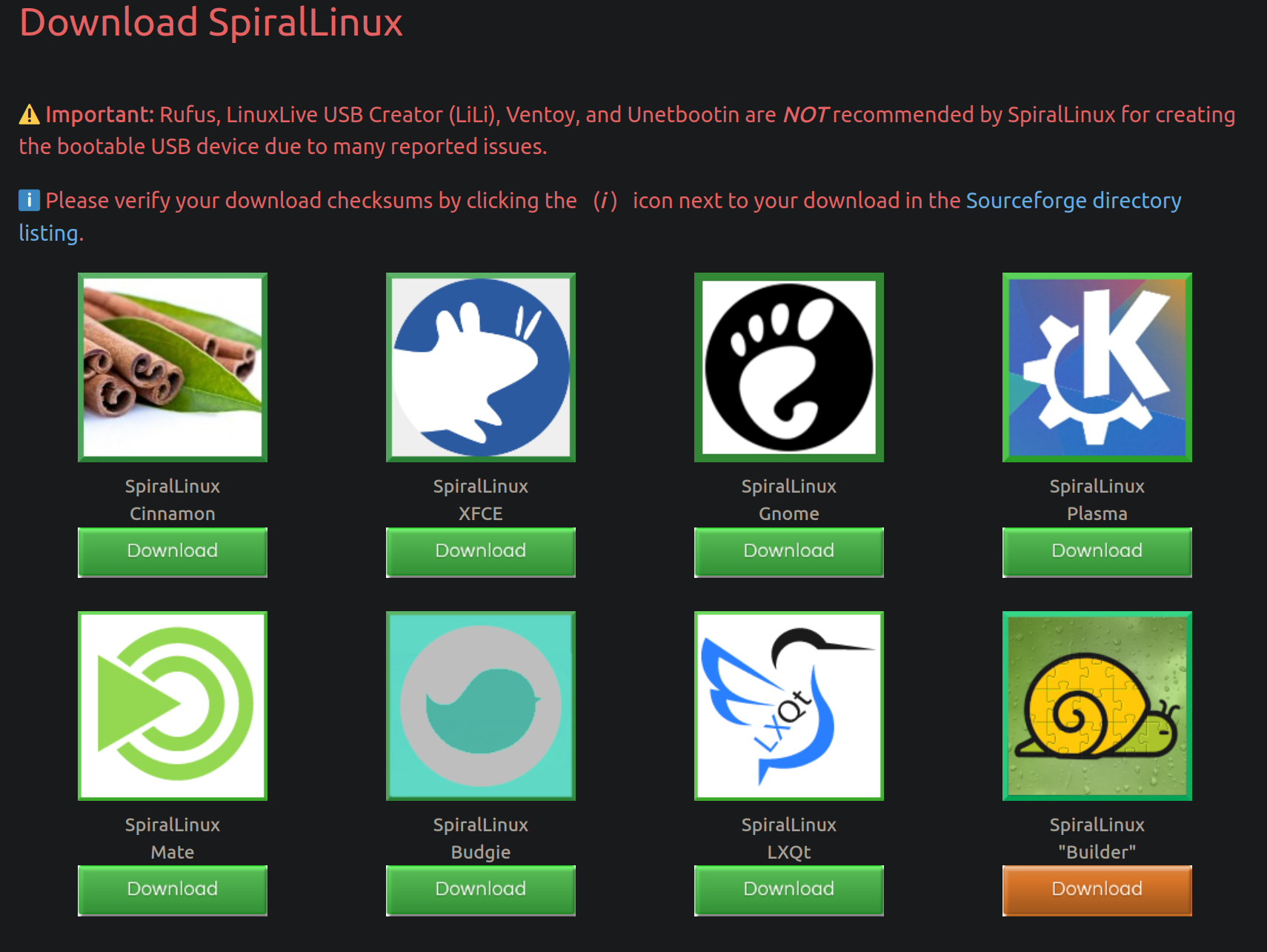Hi everyone, SpiralLinux creator here. Another thing that motivated the creation of this set of spins is the diversity of hardware, even in my own machines. I personally don't like having to switch to a completely different distro for a specific computer just because of hardware support issues. Some devices might need a newer kernel for certain components to work, whereas other hardware works better with the older kernel from Debian Stable. So SpiralLinux offers a hybrid approach, Debian Stable base system with the Debian Stable kernel included on the live ISO, but the much newer kernel version from Debian Backports is also available on the ISO. This can make the difference between the image booting or not, or between having internet connectivity or not, and it makes it more likely that SpiralLinux will work across the entire range of a user's computers.
Linux
From Wikipedia, the free encyclopedia
Linux is a family of open source Unix-like operating systems based on the Linux kernel, an operating system kernel first released on September 17, 1991 by Linus Torvalds. Linux is typically packaged in a Linux distribution (or distro for short).
Distributions include the Linux kernel and supporting system software and libraries, many of which are provided by the GNU Project. Many Linux distributions use the word "Linux" in their name, but the Free Software Foundation uses the name GNU/Linux to emphasize the importance of GNU software, causing some controversy.
Rules
- Posts must be relevant to operating systems running the Linux kernel. GNU/Linux or otherwise.
- No misinformation
- No NSFW content
- No hate speech, bigotry, etc
Related Communities
Community icon by Alpár-Etele Méder, licensed under CC BY 3.0
So like most Arch-based distros but Debian?
So like most Arch-based distros but Debian?
Hi there, SpiralLinux creator here. I would say that compared to most derivative distros, no, SpiralLinux isn't quite the same thing. Most of those derivatives also maintain some of their own package repositories, whereas I strictly avoid that with SpiralLinux to avoid users' systems depending on me for maintenance and updates and continuity of the system.
